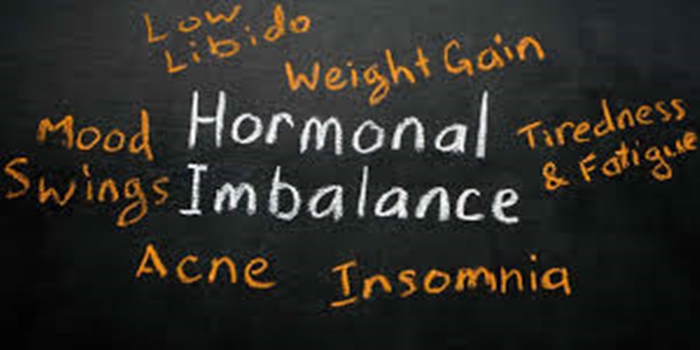In this article, we discussed the meaning of hormonal imbalance, the symptoms, we also talked about the causes and treatment
Definition
A Hormonal Imbalance happens when you have too much or too little of one or more hormones — your body’s chemical messengers. It’s a broad term that can represent many different hormone-related conditions. Hormonal imbalances can be temporary or chronic, and some may require medical treatment. If you’re feeling low or experiencing fluctuating moods, you should discuss it with a physician or therapist.
A Hormones are chemicals that regulate many important functions in the body, including mood, body temperature, metabolism, heart rate, sleep, reproductive cycles, growth, and stress.
The Symptoms of Hormonal Imbalance
Mood swings: Hormonal changes can cause irritability, depression, anxiety, and more.
Irregular periods: Periods may be heavy, painful, missed, or frequent.
Poor sleep: You may experience insomnia, night sweats, or trouble falling or staying asleep.
Fatigue: You may feel tired or lethargic all the time.
Skin issues: Your skin may be dry, coarse, or thin. You may also develop acne or dark patches of skin in your armpits, neck, or back.
Weight changes: You may experience unexplained weight gain or weight loss.
Other symptoms: You may also experience headaches, brain fog, vaginal dryness, constipation, diarrhea, or changes in your heart rate.
Slow heartbeat or rapid heartbeat (tachycardia).
Unexplained weight gain or weight loss.
Fatigue.
Constipation.
Diarrhea or more frequent bowel movements.
Numbness and tingling in your hands.
Higher-than-normal blood cholesterol levels.
Depression or anxiety.
Being unable to tolerate cold temperatures or warm temperatures.
Dry, coarse skin and hair.
Thin, warm and moist skin.
Irregular body fat distribution.
Darkened skin in your armpit or the back and sides of your neck (acanthosis nigricans).
Skin tags (small skin growths).
Extreme thirst and frequent urination.
Causes hormonal imbalances
Throughout your life — and even throughout the day — your hormone levels naturally rise and fall.
Certain periods of life cause more dramatic changes and instabilities in hormones, including:
Puberty.
Pregnancy.
Menopause.
However, there are several other reasons why your hormone levels may be irregular at unexpected times. Some of the most common causes of fluctuating or imbalanced hormone levels include:
Stress.
Certain medications.
Steroid use.
These hormonal imbalances are more likely to be temporary or fixable with a change in medication or properly managing stress.
Chronic hormone-related conditions can have several different possible causes. In general, the main conditions or situations that cause medically significant hormone imbalances include:
Tumors, adenomas or other growths.
Damage or injury to a hormone gland.
Autoimmune conditions.
Tumors, adenomas and growths
Adrenocortical carcinoma: An adrenocortical carcinoma (ACC) is a cancerous adrenal tumor that forms in the adrenal cortex. It sometimes causes excess hormone production.
Carcinoid tumors: Carcinoid tumors are a type of neuroendocrine tumor (NET) that grows from neuroendocrine cells. Neuroendocrine cells receive and send messages through hormones to help your body function.
Medullary thyroid cancer: Medullary thyroid cancer (MTC), is cancer that forms in the inside of your thyroid (the medulla). The medulla contains special cells called parafollicular C cells that produce and release hormones.
Pheochromocytoma: A pheochromocytoma is a rare tumor that forms in the middle of one or both of your adrenal glands (adrenal medulla). The tumor is made of a certain type of cell called chromaffin cells, which produce and release certain hormones. They’re usually benign but can be cancerous.
Paraganglioma: A paraganglioma (also known as an extra-adrenal pheochromocytoma) is a rare neuroendocrine tumor that forms near your carotid artery, along nerve pathways in your head and neck and in other parts of your body. The tumor is made of chromaffin cells, which produce and release certain hormones.
Treatment of Hormonal Imbalance
Treatment for a hormonal imbalance will depend on what’s causing it.
If you have lower-than-normal hormone levels, the main treatment is hormone replacement therapy. Depending on which hormone is deficient, you may take oral medication (pills) or injection medication.
For example, if you have low thyroid hormone levels (hypothyroidism), your provider can prescribe synthetic thyroid hormone pills. If you have growth hormone deficiency, you’ll likely have to take injections (shots) of synthetic growth hormone.
If you have higher-than-normal hormone levels, there are many treatment options depending on the cause.
How to prevent a hormonal imbalance
While many hormonal imbalances aren’t preventable, there are certain things you can do to optimize your overall health, which could help keep your hormones balanced, including:
Maintaining a healthy weight.
Eating a balanced, healthy diet.
Exercising regularly.
Managing your stress.
Getting enough quality sleep.
Managing your chronic health conditions well (if applicable).
Quitting smoking or using tobacco products, if you smoke. options include medication, surgery, radiation therapy or a combination of any of these.
Conclusion
Hormones are complex and powerful chemicals. If one or more of them goes out of whack, it can cause certain symptoms that make you feel like you’re not in control of your body. If you have new and persistent symptoms, it’s important to talk to your healthcare provider. They can order some tests to see if a hormonal imbalance or another condition is the cause. The sooner you reach out for help and treatment, the sooner you’ll be able to feel like yourself again.


